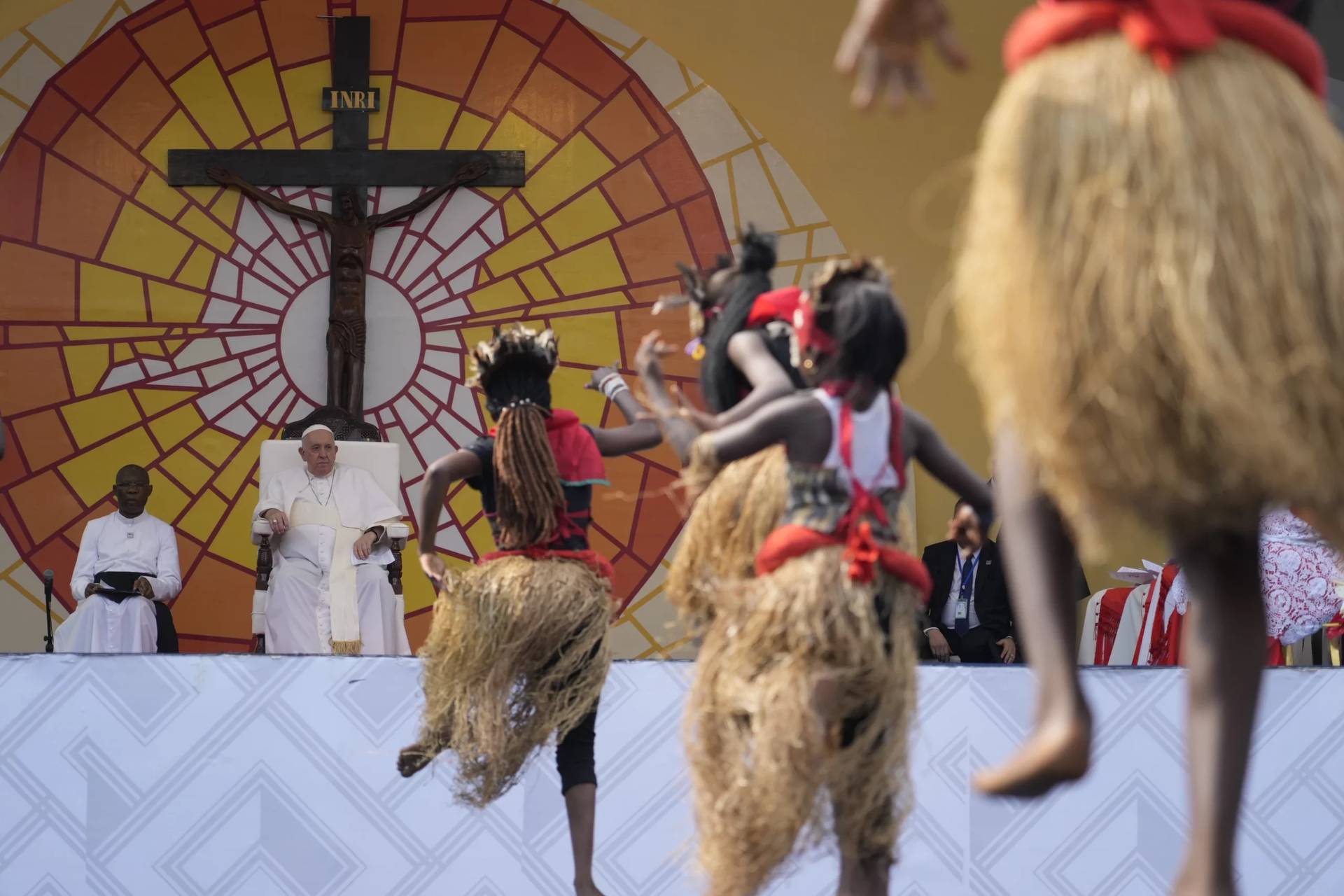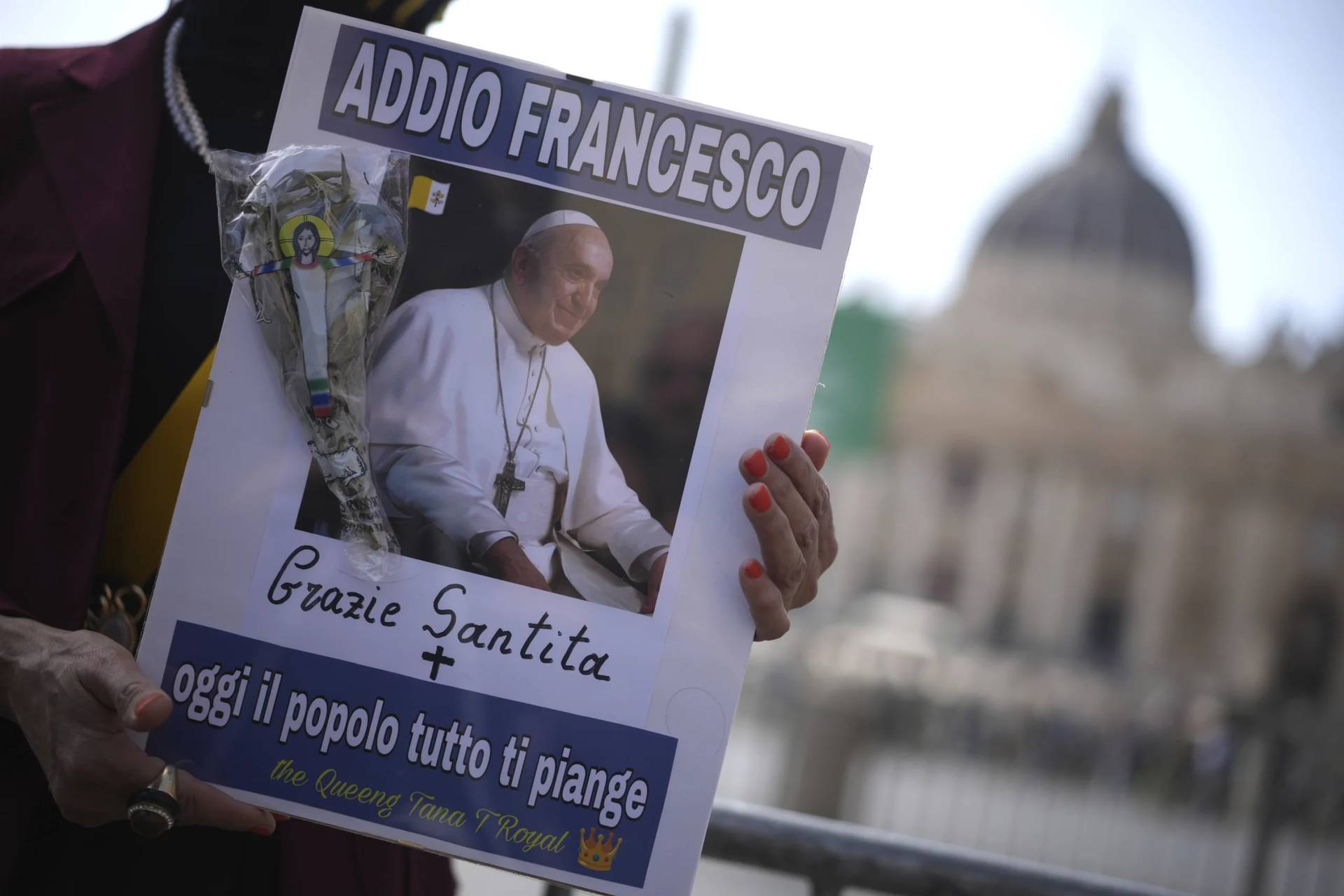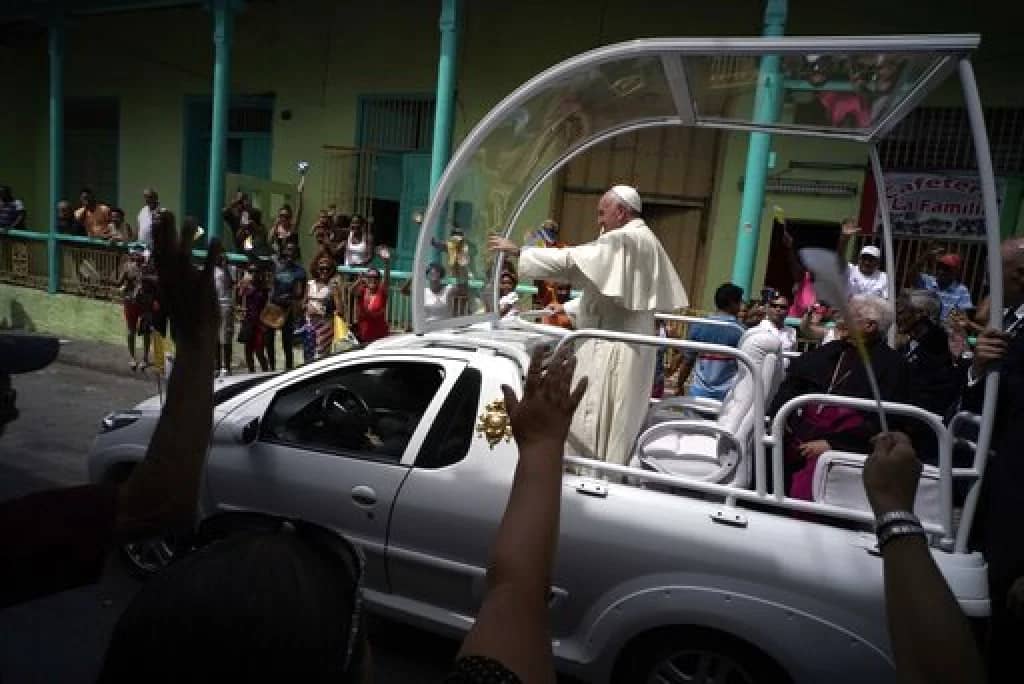ROME – One of the most remarkable, and controversial, Catholic figures of the late 20th century passed from the scene on New Year’s Day, with the death of Archbishop Hilarion Capucci of the Greek Melkite Catholic Church, a Syrian-born prelate who carried the personal title of patriarch and who was once dubbed the “Chaplain of the PLO.”
Capucci was 94 at the time of his death, which came in Rome.
He first rose to public prominence when he was arrested on August 18, 1974, by Israeli security forces after returning to Jerusalem from a trip to Lebanon. His car was found stuffed with TNT and guns headed for the Palestinian Liberation Organization.
At the time, Israeli interrogators said Capucci had blamed his decision on “blackmail” by Al Fatah guerillas, claiming that they had threatened him with physical force and “disclosure of actions that might threaten his position in the church” in order to get him to run guns for them.
In August 2002, Franciscan Father David Maria Jaeger, then a spokesman for the Franciscan custodians of the holy sites in Jerusalem, supported this hypothesis in an interview with the Italian publication Libero.
Jaeger said Capucci in the 1960s had developed unspecified “personal interests, not at all compatible with the dignity of the priestly or episocopal office,” which had left him vulnerable to blackmail.
Reports suggest that prior to the 1967 Arab-Israeli war, Capucci had worked easily with Israeli authorities, so much so that some even regarded him as a “collaborator.” After his arrest, however, he became an ardent champion of the Palestinian cause.
Capucci was sentenced to 12 years in prison, and became a cause célèbre for the cause of Palestinian liberation. Setting him free, for example, was among the demands of the German and Palestinian terrorists who hijacked an Air France jet and eventually landed in Entebbe, Uganda, in 1976.
Capucci, meanwhile, organized an international campaign to secure his release. At one point he declared a hunger strike. Pope Paul VI intervened with a personal letter to then-President of Israel Ephraim Katziv.
Capucci was released in 1977 and relocated to Rome in 1978, where he would eventually adopt the habit of saying Mass every Sunday at the Basilica of Santa Maria in Cosmedin, located near the Circo Massimo.
Israeli sources insist that part of the deal to get Capucci out of jail was that he would stay away from politics, but if so, it was honored largely in the breach.
Capucci served as a member of the Palestine National Council, the PLO’s parliament-in-exile, and in 1980 was dispatched by Yassir Arafat to negotiate the return of the bodies of American soldiers lost in the attempt to rescue the embassy hostages in Iran.
He continued to be active in pro-Arab causes. In December 2000, for instance, Capucci made a visit to Lebanon to visit Sheikh Nabil Qaouq, a Hezbollah leader. In front of reporters, when he reached the Lebanese-Israeli border, Capucci picked up a stone and hurled it in the direction of the Israeli territory.
“I wish I had been with the heroes of the intifada to take part in their battle for the independence of Palestine,” Capucci said.
In March 2002, Capucci participated in a march in Rome which had been billed as an apolitical appeal for peace in the Middle East, but which some believe turned into a pro-Palestinian and anti-Israeli exercise, with slogans and banners that even members of Italy’s secular left described as “anti-Semitic.” A group of young Palestinians dressed as suicide bombers led the procession.
In October 2002, Capucci held a press conference during a trip to Baghdad to oppose a U.S.-led war, and later accompanied Tariq Aziz, Saddam Hussein’s spokesman, during a trip to Italy just before the war broke out to try one last time to head it off.
Aziz and Capucci made a stop in Assisi, where Capucci seemed to blame Iraq’s troubles on Israel.
“Israel is like a spoiled child that has ended up living a double standard,” he said.
All of that, of course, earned Capucci both detractors and admirers.
Israeli diplomats, for instance, over the years often complained through back channels to the Vatican that Capucci’s activism was violating the terms of his release, usually to no avail.
Other observers saw Capucci as the leading symbol of a tendency among some Middle Eastern bishops to want to prove their Arab credentials to such an extent that they end up being uncritically pro-Palestinian, anti-Israeli, and occasionally anti-American.
His fans, however, saw him as a hero, a man willing to speak up and be heard for justice when other prelates often went quiet.
He was elegized on Sunday, for instance, by Italian journalist Alberto Palladino as a man “with the force of a lion, framed by his full beard, and at the service of peace in his beloved Middle East and the entire world.”
“He was a rare man,” Palladino wrote, “one of those who looks you in the eye because he knows he has nothing to hide, and much to teach.
“He taught above all with silence, and with the example of a life spent for the cause of the least, those least among us who won’t give up in the face of either the powerful or the terrorist.”
Whatever one makes of Capucci’s legacy, he was a unique figure, and Catholicism in some ways will be less interesting without him.















